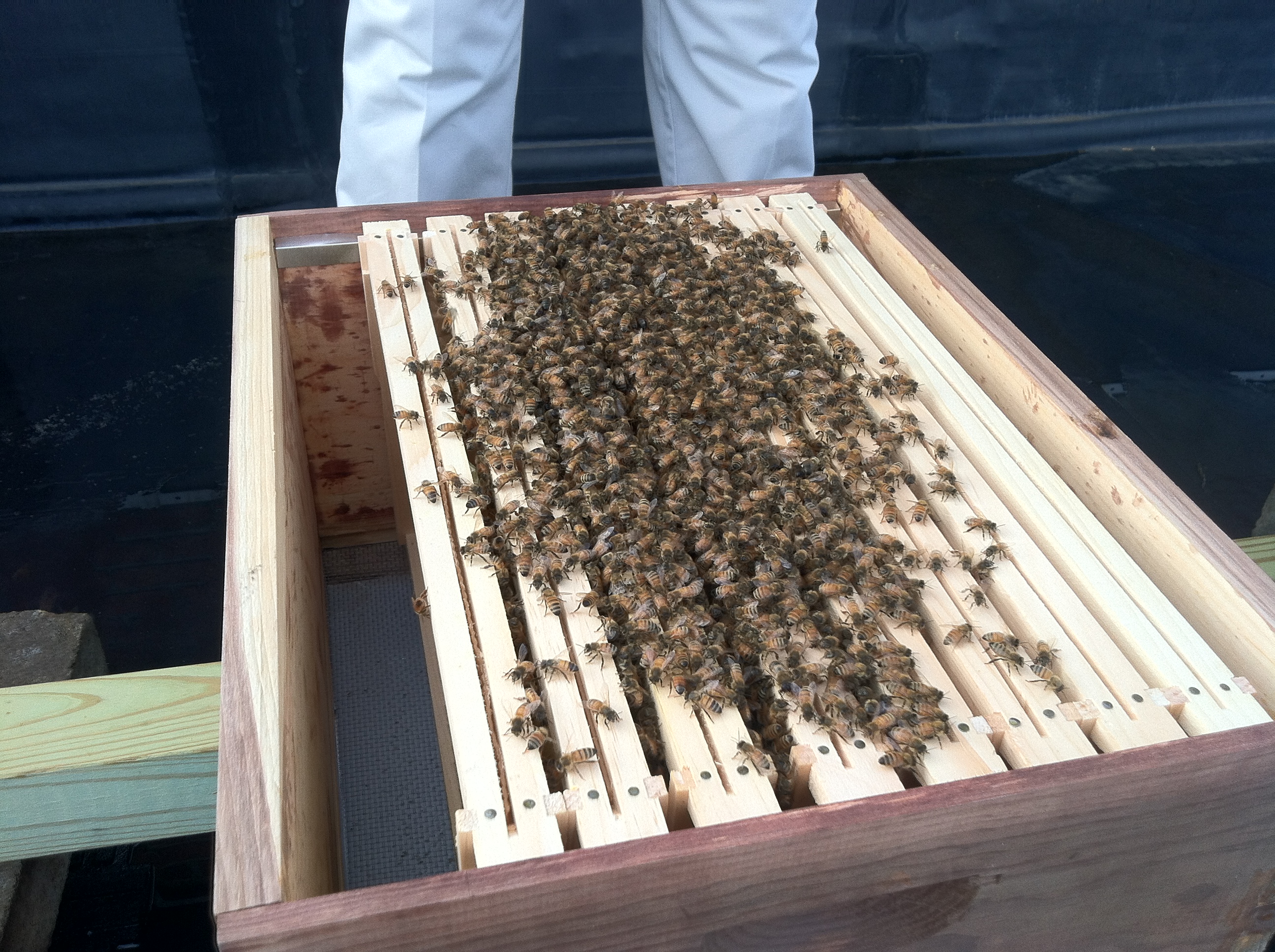Last month, the Ignatius Ploughmen took part in their latest ventures into the arts of farming and beekeeping. After a successful first season, the Ploughmen began to prepare for the winter season, which normally would see little activity in the field and in the hive.
The extraction process of honey is often considered to be the most rewarding and fun part of a beekeeper’s job. Since establishing themselves on the rooftop of the Science Building earlier this April, the bees have been hard at work, producing more honey this season than was expected of them. In addition to the two boxes (called supers) of honey that each hive uses as reserves of food for the winter, the bees were further able to build up and fill a box that the Ploughmen removed for their own use. Often, a new colony needs a full year of establishing itself before this can happen.

The Ploughmen extracted honey in Rade Dining Hall with a tool that uses centripetal force to rip the honey from its comb, allowing it to flow into a bucket. By excellent luck, the newly founded Culinary Club was just next door in the kitchen as the Ploughmen worked, and they were offered some of the first honey from the hive. The students happily accepted and used it to sweeten a dessert, which they shared with the Ploughmen.
The Ploughmen intend to use their honey for a variety of purposes in the future, including for food for the cafeteria.
Another project recently taken on by the Ploughmen this autumn was the building of two new garden tunnels. Several students came to work on a Saturday to bend pipes and lay plastic over two raised beds in the garden adjacent to the Jesuit residence. These tunnels are basically scaled-down versions of the walk-in hoop houses that are laid out along the sides of country roads.






